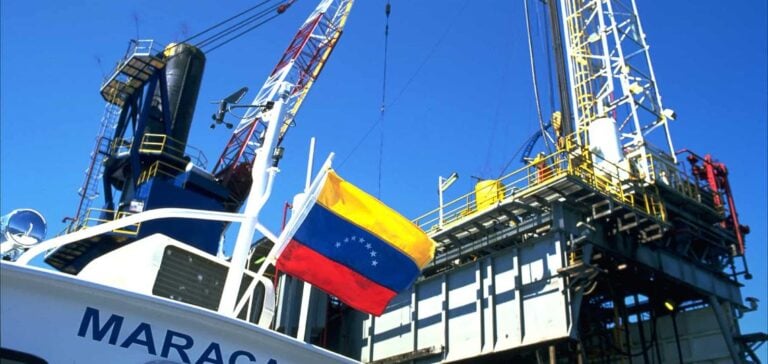Venezuela’s Ministry of Oil has been at the center of a whirlwind of scandals and arrests for several years. Since Nicolas Maduro took power, five of the last eight occupants of this position have been involved in corruption cases. This sector, crucial to the nation’s economy, reveals a complex landscape of political allegiances, accusations of betrayal, and institutional failures. This succession of scandals further weakens a country already mired in a severe economic crisis.
Troubled Management Under Ramirez’s Leadership
Rafael Ramirez, a confidant of former President Hugo Chavez, was one of the most influential ministers in the oil sector. Under his leadership, Petroleos de Venezuela (PDVSA) was reshaped to align with chavismo ideals. However, this rigid control over the sector also allowed persistent opacity to settle in, making it difficult for whistleblowers to speak out. After leaving the government, Ramirez was accused of orchestrating a corruption system that allegedly cost the country an estimated $45 billion. Now in exile in Italy, he remains beyond the reach of prosecution.
El Aissami: A Symbol of Sector-Wide Corruption
Tareck El Aissami, a close ally of Maduro and former vice president, was appointed in 2020 to “clean up” PDVSA after the Ramirez-era scandals. Yet, by 2023, he was himself arrested and imprisoned. He stands accused of embezzling funds through crypto-assets in an effort to circumvent U.S. economic sanctions. Photos of his arrest, handcuffed and surrounded by masked law enforcement, symbolize the extent of the scandal and illustrate the depth of corruption undermining the oil sector.
The Fall of Pedro Tellechea: Alleged Treason and Resignation
The most recent casualty is Pedro Tellechea, former PDVSA president and Oil Minister. In 2023, he took over the ministry, aiming to revitalize oil production. Months later, he too was arrested, accused of leaking strategic information to U.S. intelligence. Before his arrest, Tellechea had been lauded for increasing oil production from 400,000 to 900,000 barrels per day, amidst a post-electoral political crisis. The ministry claims his actions amount to treason amid persistent tensions between Caracas and Washington.
Internal Struggle Within the Ranks of Power
The successive arrests of these influential figures in the oil industry reflect internal divisions within the Venezuelan power structure. In an effort to maintain his legitimacy, Maduro continues to denounce “traitors” within his government. However, the persistence of scandals reveals a weakened system where corruption seems nearly impossible to eradicate. Oil-related issues go beyond mere management concerns, symbolizing a power struggle with both internal and international geopolitical implications.
A Strategic Sector Weakened by Corruption
With the arrests of its top officials, Venezuela’s oil sector, once the backbone of the economy, is now weakened. Endemic corruption, accusations of treason, and operational opacity destabilize a country already suffering from an unprecedented economic crisis. Observers question whether Venezuela will manage to recover from these scandals or if the oil institution will continue to collapse, taking the national economy down with it.





















